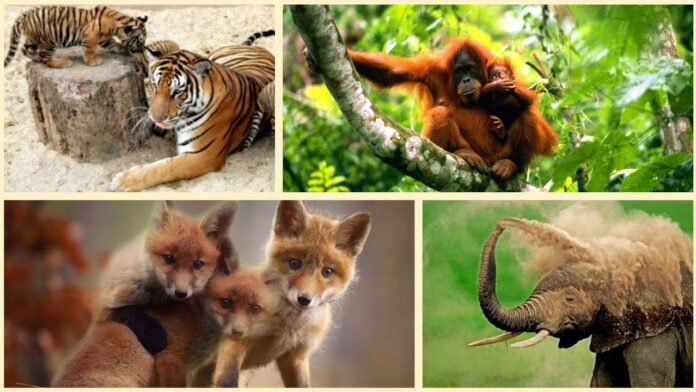Human activity drives dramatic loss in biodiversity, prompting urgent calls for action ahead of the COP16 summit in Colombia.
Nature faces unprecedented peril, according to a startling new report from the World Wildlife Fund (WWF), which highlights the severe decline of global wildlife populations. The report reveals that, on average, wildlife populations have plummeted by a staggering 73% over the past 50 years, primarily due to human-driven habitat destruction, pollution, and climate change.
The findings encapsulate the ongoing biodiversity crisis, underscoring a dire situation for ecosystems worldwide. Species suffering the most include chinstrap penguins in Antarctica, hawksbill turtles around the Great Barrier Reef, and Amazon river dolphins in Brazil.
In 2022, world leaders convened in Montreal for the COP15 biodiversity summit, where they pledged to halt and reverse nature loss. However, as the upcoming COP16 summit in Colombia approaches, the WWF emphasises that the actions taken over the next five years will be pivotal for the future of life on Earth.
Tanya Steele, Chief Executive of WWF UK, expressed her concerns during an interview with Channel 4 News. “This is a catastrophic report, a huge wake-up call,” she stated. “It demonstrates significant losses for wildlife and highlights grave consequences for all of us. Ultimately, by losing so many wild areas, we are pushing our ecosystems to the brink. Unless we take steps right now, we have no hope of ensuring the health and stability of humanity on Earth.”
The WWF’s Living Planet Index, a comprehensive assessment that has tracked animal populations since 1970, monitors changes in over 5,000 species across 35,000 different groups worldwide. While the average decline of 73% does not indicate that the world has lost three-quarters of all wildlife, it signals a critical warning about the state of biodiversity.
Freshwater species, in particular, have suffered the most dramatic declines, with populations shrinking by an alarming 85% on average over the past half-century. A notable example includes the Chinook salmon in California’s Sacramento River, which has experienced an 88% decrease in numbers since 1970, largely due to dams obstructing their spawning routes.
The report serves as a clarion call for immediate action to reverse these trends. As global leaders prepare for COP16, WWF urges governments and stakeholders to commit to robust measures that address the root causes of biodiversity loss. This includes enhancing habitat protection, reducing pollution, and tackling climate change head-on.
With ecosystems in crisis, the implications of continued wildlife decline extend beyond the animal kingdom. Biodiversity loss disrupts food chains, reduces resilience to climate change, and threatens the essential services that nature provides to humanity, such as clean water and air, pollination of crops, and disease regulation.
As the date for COP16 draws near, the spotlight will be on how effectively world leaders can translate promises into actionable policies that protect wildlife and restore natural habitats. Tanya Steele stresses the importance of collaboration and commitment, stating, “We must act decisively and collectively. The health of our planet—and our very existence—depends on it.”
The WWF’s findings resonate with growing concerns from scientists, conservationists, and the public alike, urging a shift in mindset towards preserving the natural world. The biodiversity crisis is not just an environmental issue; it is a global challenge that impacts economies, health, and future generations.
The urgency for action has never been clearer. As leaders gather in Colombia, the hope remains that this moment will catalyse a renewed commitment to safeguard the planet’s wildlife and natural ecosystems for years to come.
